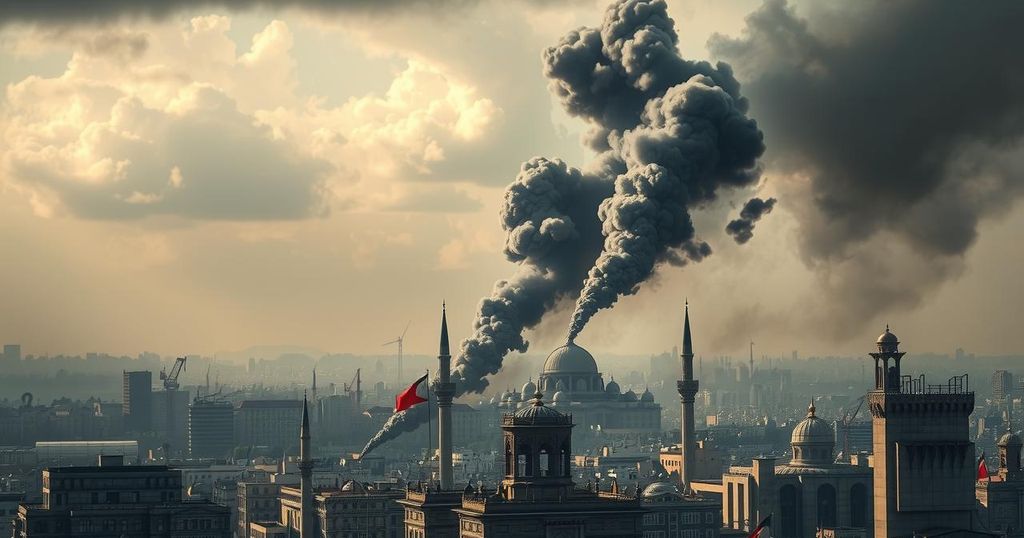Israel Launches Attack on Iran’s Capital Amid Escalating Tensions

Israel conducted an early morning attack on Tehran, aimed at nuclear and military sites. Iranian state media report that a high-ranking Revolutionary Guard leader is feared dead. U.S. Secretary of State confirms the unilateral nature of Israel’s actions while advising caution regarding American interests in the region. The international community watches closely as tensions rise further.
JERUSALEM (AP) — Tensions erupted early Friday as Israel launched a significant attack on Iran’s capital, Tehran, with loud explosions reported throughout the city. According to Iranian state television, a top commander, Gen. Hossein Salami of the Revolutionary Guard, is believed to be dead following this strike, alongside other high-ranking officials and two nuclear scientists. The assaults targeted several sites, notably the base of Iran’s paramilitary forces, igniting a fierce fire.
The Israeli Prime Minister, Benjamin Netanyahu, confirmed that the objectives included nuclear and military facilities, stating the need to eliminate threats posed by Tehran’s evolving nuclear ambitions. The attacks follow increasing strain over Iran’s nuclear program, which has recently seen Iran planning the establishment of its third enrichment site and upgrading its centrifuge technology.
In a YouTube address, Netanyahu indicated that Israel’s operation would persist until the perceived threat is eradicated. The attack has drawn responses from U.S. officials, including Secretary of State Marco Rubio, who called the Israeli actions unilateral but necessary for self-defense. He assured that the U.S. is not directly involved in these strikes, prioritizing the protection of American personnel in the region.
Residents in Tehran were jolted awake by the blasts and thick smoke began rising, especially over the Chitgar neighborhood, although it remains unclear what exactly had been targeted. An Israeli military official, speaking anonymously, affirmed that nuclear sites were part of the operation, but specific locations were not disclosed.
The aftermath of the strike saw a sharp spike in benchmark Brent crude prices, with an increase of nearly 5%. Israel’s Defense Minister, Israel Katz, cautioned of potential missile and drone retaliation from Iran, indicating a state of emergency in Israel. Katz advised citizens to heed safety directives and stay in protected areas while airspace closures were enacted by both countries.
The global political landscape appears tense, particularly as President Donald Trump was engaged with Congress at the White House during the attacks. There’s speculation about whether Trump had been informed, but prior to the incident, he expressed a desire for Israel to exercise restraint while negotiations with Iran were underway.
The attack on Tehran by Israel marks a severe escalation in tensions over Iran’s nuclear program. With key figures reportedly killed and significant military sites targeted, both nations brace for possible retaliations. The situation underscores the fragility of peace and the volatility of international relations, especially in the Middle East. Leaders from both sides are taking steps to protect their citizens, even as markets react to the heightened conflict.
Original Source: apnews.com








